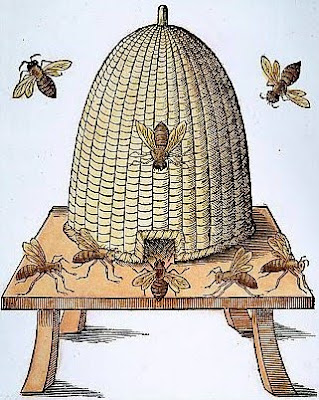According to Garden Organic's December newsletter:
"Wild honeybees are already virtually extinct in the U.K whilst managed honeybee colonies have plummeted by 53% in just 20 years".
Seems to be the same unsourced scaremongering nonsense thrown out on Countryfile not so long ago.
www.beekeepingforum.co.uk/showthread.php?t=17351
What we do know is that BBKA history pages say that there were 80,000 beekeepers and 396,000 hives in 1953. That's England and Wales, probably their estimate of the peak post-war. We know BBKA membership fell to 9,000 in 2001, rose to 20,000 in 2010 and they claim 23,000 now. If half the 80,000 in 1953 were BBKA members, it is a substantial three quarter reduction in beekeepers 1953 to 2001 but numbers may have doubled since then,
The 1953 numbers are affected by sugar rationing, beekeepers could claim sugar rations and anecdotally many were claiming for empty boxes but they are likely to be the best numbers available. A widely quoted DEFRA estimate is 250,000 hives in the UK which has been quoted for ten years or more. Various bee farmers (including ITLD in posts here) think that is a politically convenient figure and hives were probably some way under 200,000. Recent interest and a definite increase in beekeeper numbers, albeit many in the 1-4 hive range, mean there are almost certainly more colonies now than ten years ago. England and Wales numbers counted in September are included in the 2011 SE Region honey survey. These are NBU inspector figures, they have some ground based credibility, even if from a single angle. 25,000 beekeepers in beebase, + 25% unregistered, average 5.07 colonies per beekeeper or 158,437 colonies. Impossibly precise given the broad estimates going in, the actual numbers could easily be ten percent or more either way.
"managed honeybee colonies have plummeted by 53% in just 20 years". If nobody can produce an estimate with any precision now, how likely are figures in 1992 to be any better? 53% is no more than spurious accuracy based on unlikely guesses in 1992 and 2012. That's not far off complete fiction.
Sad thing is that many have sympathy for organic and other environmental issues but the organisations that do exist regularly blow holes in their own credibility by just making stuff up.



















































